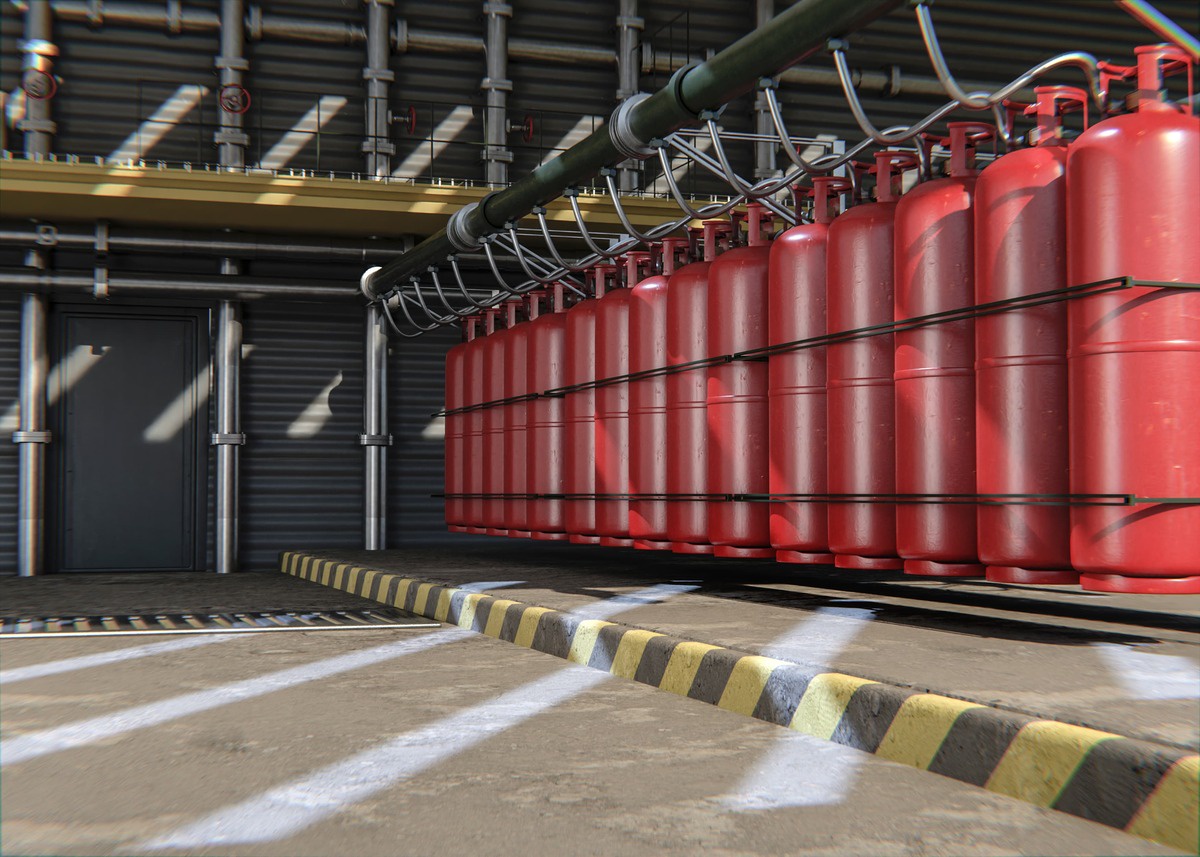Introductions
In today's world, ensuring fire safety is paramount, especially in commercial and residential settings where the risk of fires can pose significant threats to lives and property. Fire suppression systems play a critical role in safeguarding against fires by detecting and controlling them swiftly and effectively. In this comprehensive guide, we'll explore the importance of fire suppression systems, how they work, the different types available, and why investing in these systems is crucial for ensuring safety and peace of mind.
Understanding Fire Suppression Systems
Fire suppression systems are specialized equipment designed to detect and respond to fires automatically. These systems are essential in rapidly containing and extinguishing fires before they can cause extensive damage or harm. The primary components of a fire suppression system include:
-
Detection Devices: Fire suppression systems are equipped with sensors or detectors that can detect the presence of smoke, heat, or flames, signaling the presence of a fire.
-
Control Panel: The control panel is the brain of the system, receiving signals from detectors and activating the suppression process when a fire is detected.
-
Suppression Agents: These systems deploy different types of suppression agents, such as water, foam, gas (e.g., CO2), or dry chemicals, to extinguish fires depending on the type of hazard.
Types of Fire Suppression Systems
There are several types of fire suppression systems designed to address specific fire hazards and environments:
-
Water-Based Systems: These systems use water as the primary extinguishing agent and include sprinkler systems and water mist systems.
-
Chemical-Based Systems: Chemical suppression systems use agents like foam or dry chemicals to suppress fires by disrupting the combustion process.
-
Gas-Based Systems: These systems use inert gases or chemical agents to reduce the oxygen levels in the fire area, effectively extinguishing the fire without leaving residue.
-
Hybrid Systems: Hybrid systems combine different suppression methods to provide comprehensive fire protection tailored to specific applications.
How Fire Suppression Systems Work
The operation of a fire suppression system typically involves the following steps:
-
Detection: The system detects a fire through sensors or detectors that sense heat, smoke, or flames.
-
Alarm Activation: Upon detecting a fire, the system activates an alarm to alert occupants and initiate the suppression process.
-
Agent Discharge: The suppression agent (water, foam, gas, etc.) is released through nozzles or sprinkler heads, targeting the fire and extinguishing it.
-
Fire Control: The suppression agent works to control the fire by cooling, smothering, or interrupting the combustion process.
-
System Reset: After the fire is extinguished, the system is reset, and the area is inspected to ensure readiness for future emergencies.
Benefits of Fire Suppression Systems
Investing in a fire suppression system offers numerous benefits:
-
Early Fire Detection: Systems detect fires in their incipient stages, allowing for prompt action and minimizing damage.
-
Rapid Response: Suppression systems act swiftly to control fires, reducing the risk of spreading and protecting lives.
-
Property Protection: These systems help protect valuable assets and equipment from fire-related damage.
-
Compliance and Safety: Installing fire suppression systems ensures compliance with fire safety regulations and standards, enhancing overall safety for occupants.
Why Invest in Fire Suppression Systems
For both residential and commercial properties, investing in fire suppression systems is a wise decision. Here's why:
-
Safety First: Fire suppression systems prioritize safety by minimizing fire-related risks and ensuring a swift response in emergencies.
-
Peace of Mind: Knowing that a property is equipped with effective fire protection systems provides peace of mind for occupants and property owners.
-
Insurance Benefits: Installing fire suppression systems may lead to reduced insurance premiums, as insurers recognize the reduced risk of fire-related claims.
-
Legal Compliance: Many jurisdictions require fire suppression systems in certain types of buildings to comply with fire safety codes and regulations.
Conclusion
In conclusion, fire suppression systems are indispensable for protecting lives and property against the devastating effects of fires. These systems detect fires early, respond swiftly, and effectively extinguish flames, minimizing damage and ensuring the safety of occupants. Whether in residential homes, commercial buildings, or industrial facilities, investing in fire suppression systems is a proactive measure that enhances fire safety and provides invaluable peace of mind. By understanding the importance of fire suppression systems and their operational aspects, property owners can make informed decisions to safeguard their properties and ensure a safer environment for all.


No comments yet